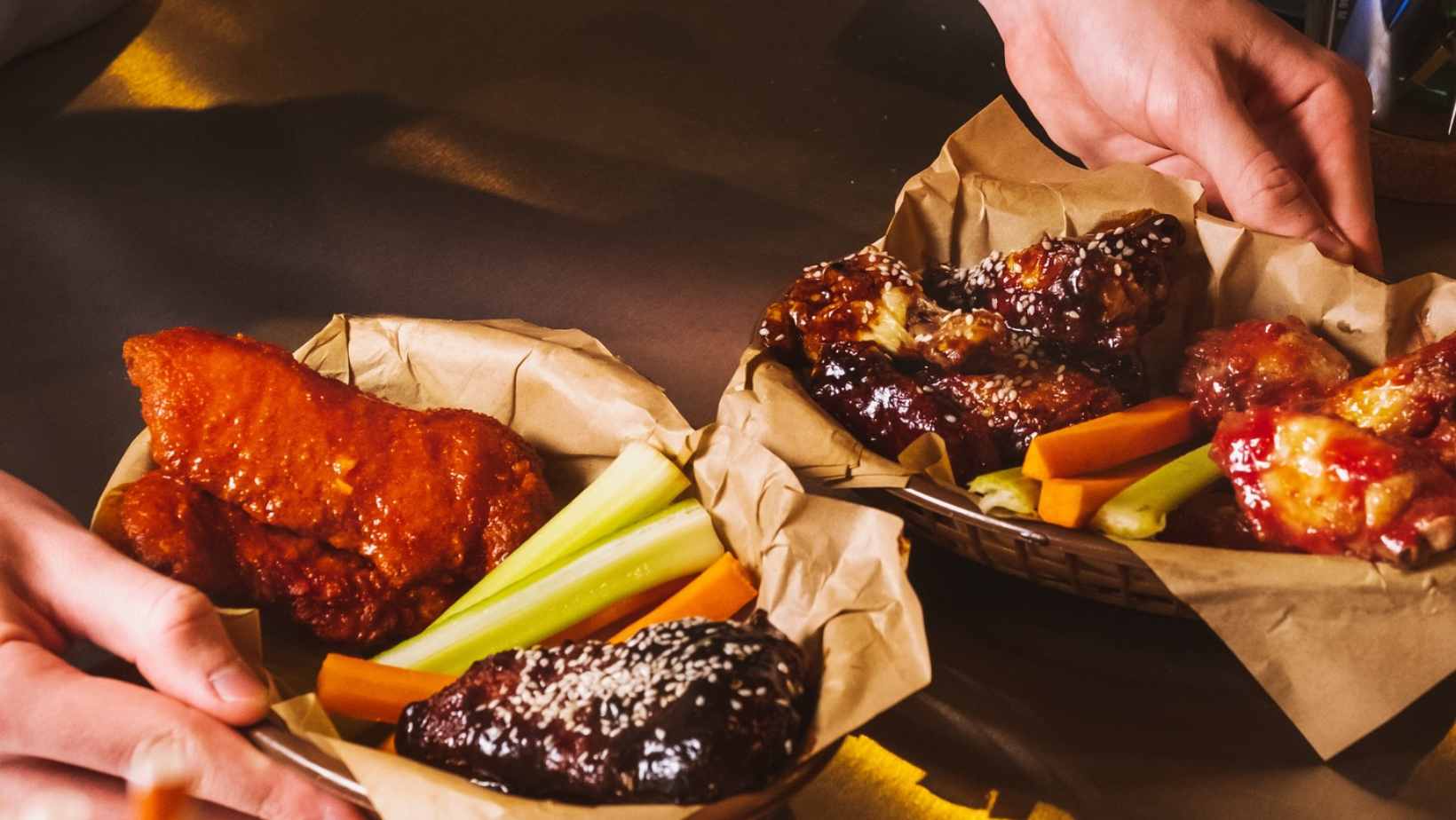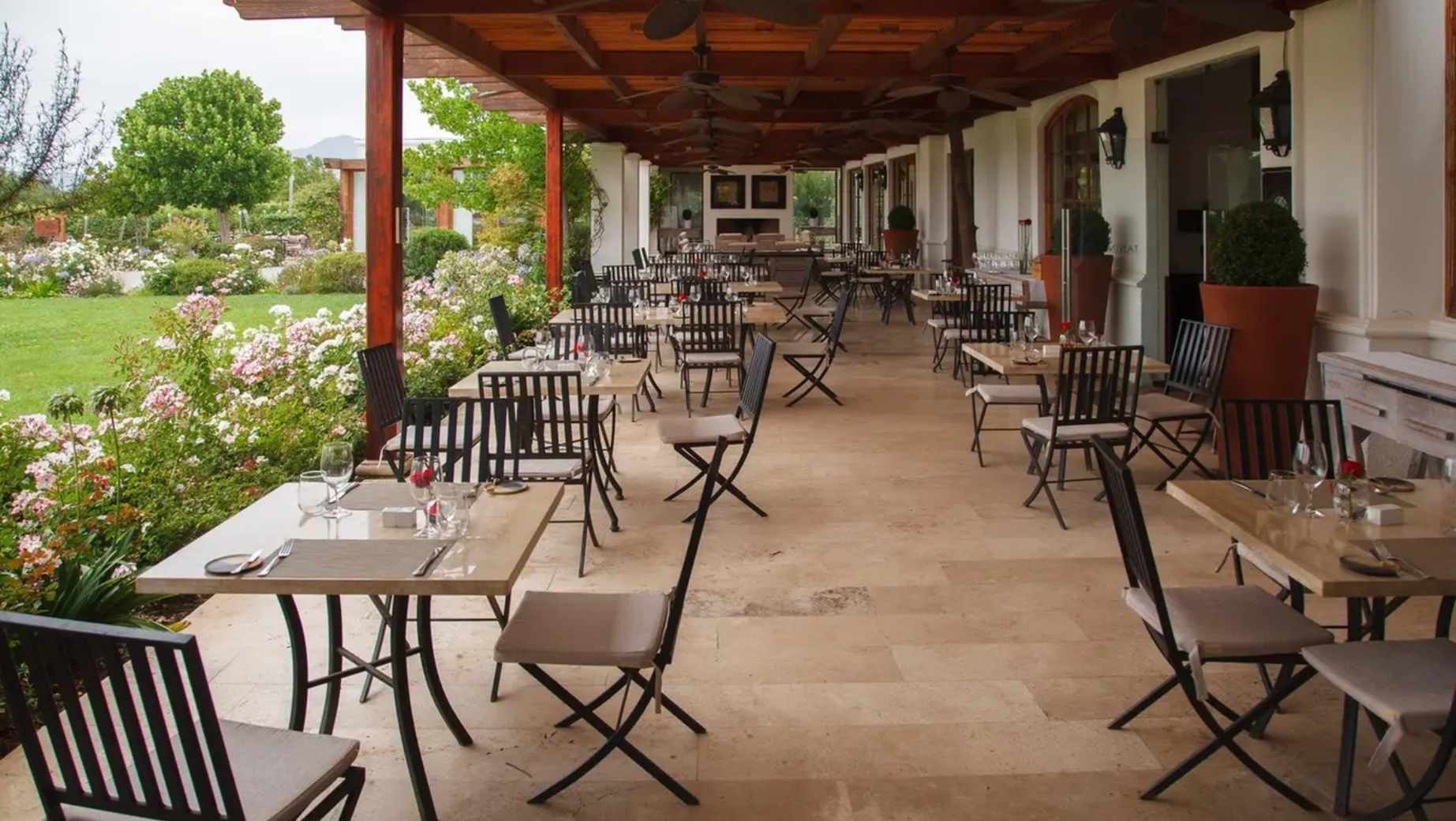"A Posto Trattoria - A Hidden Gem of the Italian Restaurants in Prague
Izabela D.
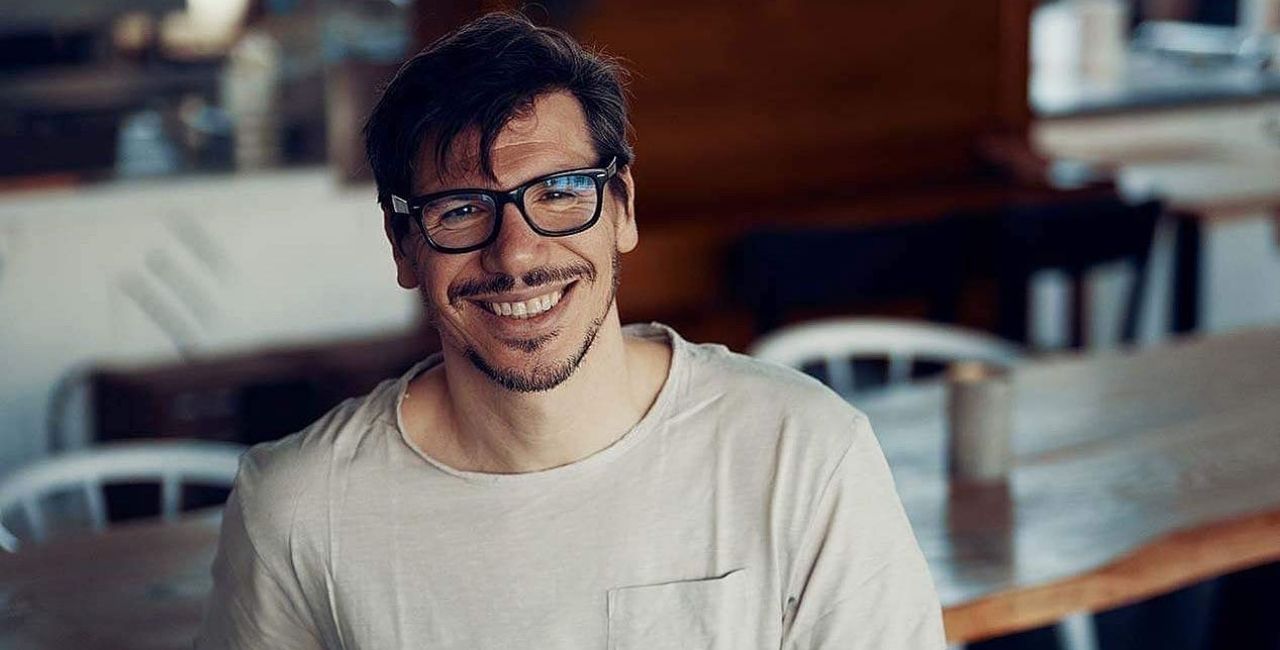
Wouldn’t it be wonderful to know that the food we consume is not only delicious, but also healthy for you and the environment?
This food philosophy is at the heart of A Posto Trattoria, a true farm-to-table restaurant in Prague 8 that serves up authentic Italian and Sardinian
meals.
A Posto Trattoria collaborates with local farmers to implement the most sustainable and regenerative farming practices while focusing on using healthy ingredients in their food.
Located in a peaceful part of Nové Chabry, we traveled to A Posto Trattoria on a nice Sunday afternoon and spoke with its owner and main chef, Mr. Gianfranco Coizza.
A native Sardinian, Mr. Coizza shared with us many interesting stories and information on the idea of sustainability, as well as told us more about the forthcoming opening of an authentic Italian pastry shop in the area of Prague 8.
Q: Your menu has literally everything we need to eat well. It’s just perfect.
A: “A Posto” in Italian means that everything should be just as it is.
Q: Do you also have culurgiònes (Sardinian stuffed pasta)? It seems that It’s not always the part of the a-la-carte menu.
A: No, we are changing the menu depending on the season, and depending on what is available from the farmers and our partners. There are things that we just cannot take out of the menu – because some of the customers keep coming back exactly because of that one particular meal. I like to put some Sardinian food on the menu.
Some of my chefs are coming from different Italian regions, so everyone brings some specific culinary ideas from their areas.
Q: Saffron is a very important part of Sardinian cuisine.
A: Yes, and luckily my best friend here in Prague is importing saffron, his warehouse is only about 2 kilometres away from my restaurant, so I have it always fresh and available.
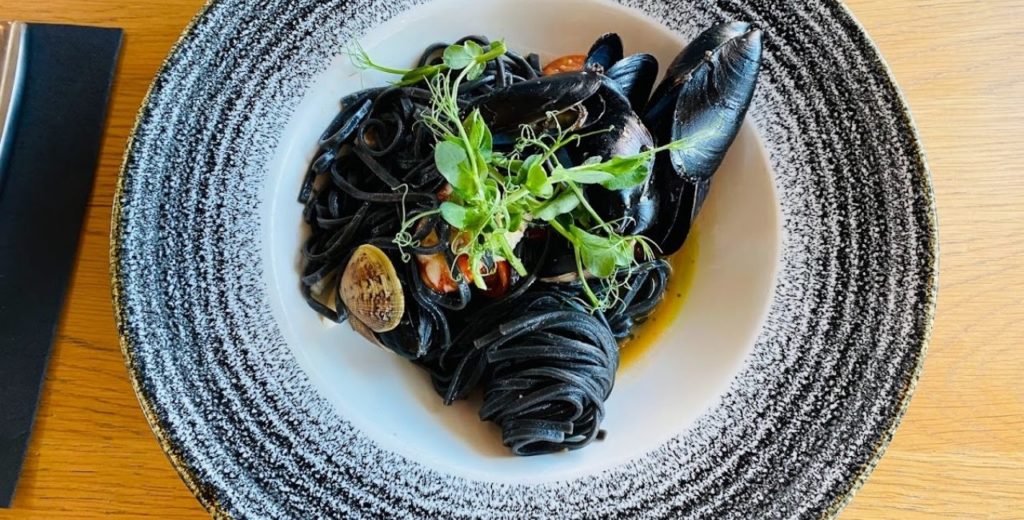
Q: When did you get into the restaurant business, and what brought you to Prague?
A: When I was still living in Sardinia, I was studying agriculture in high school, which included learning about the technology of making food, oil, wine, and cheese. After finishing these studies, I moved to Tuscany to study literature at university, and during my studies, I was working in a restaurant and winery, so that’s where I’ve got my training in the restaurant business.
Some years later I came to Prague, and basically what brought me here was my interest in literature, and also this dream of getting into the restaurant business. So, my first experience in Prague city’s restaurant business directly was in restaurants Alforno Focacceria and Aldente, however, now with my own business I want to combine our great recipes with even better customer service. I’ve tried myself in the catering business, I was a private chef, I held private cooking classes and many other activities too, therefore all these experiences make one amazing cohesion of success in my trattoria.
Throughout the years I’ve become wiser, and now I’m able to implement culinary knowledge, through my experience with the literature and travelling.
Q: How about the comfort food? Do you have natives coming here, native Sardinians, Italians, visiting your trattoria exactly because of one specific meal?
A: Yes, there are. But since we are a bit far from the centre, most of the Italians and tourists are focusing on the central diners, but I do have regular native customers. We honestly take care of the quality and authenticity.
Q: When you opened this restaurant, what was the first overall feedback of your customers?
A: First, when we opened this restaurant, the timing was not great, because only ten days after the opening the first lockdown happened. Of course, it caused us some problems, like everyone else in the gastro-business. However, on the other hand, we put the focus on creating a relationship with the locals in this neighborhood.
We’ve tried to do things that are supposed to be something wider – and that was to provide our customers not only food but also Italian and local products. For example, our bread is a big success.
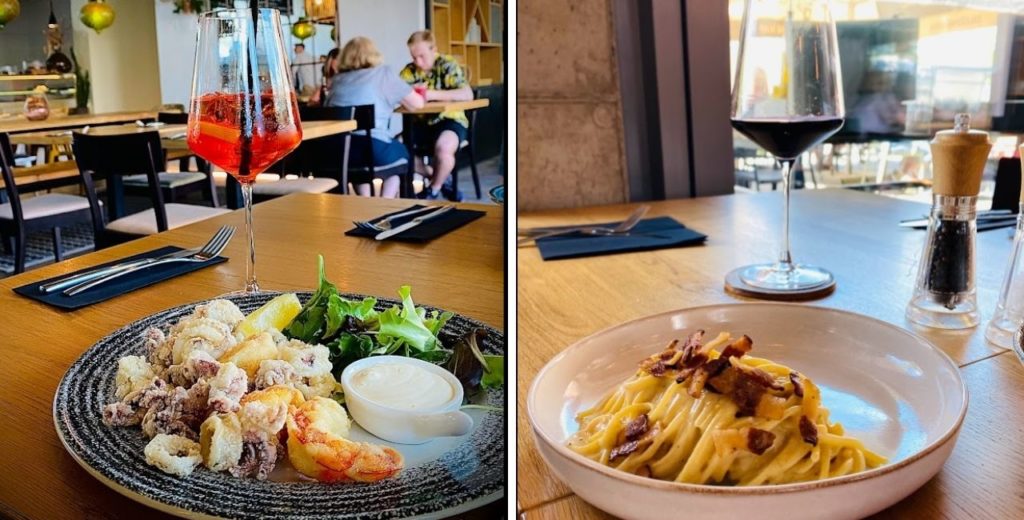
Yes, the bread was indeed fresh, fluffy inside and crunchy outside… (we’ve tried the food as paying customers prior the interview)
I think that the restaurant is always the same thing – especially when you propose and offer something that the customers don’t know – first, you need to gather their trust, and then you can suggest, and guide them what they should try.
Trust is the most important thing in this industry, and I see that we’ve managed that. Of course, there are also more conservative guests that expect the same food on the menu every time they are visiting, for example, the Carpaccio.
What we are trying to explain to our customers is that this is a modern trattoria. Trattoria is a more relaxed place, where the common Italian, everyday food is served.
But with a strong accent on quality, experimenting, on keeping an eye on what’s going on around. Therefore, we are constantly working on being a sustainable trattoria, cooperating with even more farmers, trying to invent, improvise, and not focus only on the so-called “touristy” food.
Q: A trattoria has a soul, and the locals would probably love to have an Italian restaurant that has a spirit, nice simple environment, what seems to be missing in Prague, does it?
A: I think that Prague doesn’t have many authentic Italian restaurants. There are few, of course, but on the other hand, there are too many “Italian wannabe restaurants”.
We are trying to do comfort food, but I’d call it rather soul food, as each course has a story behind it. For example, if you order the carbonara, all the ingredients are first of all supplied from the local farms and animals, which are treated the way they should be.
Q: With the reference to sustainability, I’d like you to tell me more. About your zero-waste philosophy.
A: What we try to do is to avoid waste as much as we can. I think that 100% zero-waste does not exist because there is no such thing as zero
waste. It’s more of a goal. When you want to go to a gym and train the body, not everyone gets the results, but you do set a goal and on long
term, you see the results.
We are trying not to waste anything, and to use up all the ingredients. For example, if we peel the carrot, we don’t throw it away, but we use it for a broth, or dry it up, or use it for the decoration of the dish. From a small farm, where I know how they treat those animals, we know what they were eating, where they were living, and we always use the products of the whole animal.
We butcher it, we make the broth, fat, and use it all. Just across our trattoria, there is our butcher shop as well, so customers can buy meat, sausages, and sauces too. This way we use up all our ingredients. This is the only fair approach nowadays. We all know that the economy will get worse
in the upcoming periods, therefore I try also to teach my own children who are 8 and 5 years old the respect towards nature. And this is not
something new! Our grandparents used to do it this way, and it was the correct way.
Q: What is the trattoria’s signature dish and why?
A: One dish from the very beginning and is very popular, is the Vitello Tonnato, which is a Piedmontese dish. It’s very traditional. It’s a dish
from veal meat slices, with a sauce made of pepper, anchovies, veal broth, and capers. This meal is interesting to me because it unites the land and the sea.
Instead of the salt, they used the anchovies to give the meal a salty taste. We try to make it with a modern technique but respect all the ingredients. Other dishes that are extremely popular are the Linguine with the seafood, the octopus, and we have a dish which is called Polpo Allada, which is made in Sardinia, but in a specific area, which is a Catalan colony, and the locals speak Catalan in that area. It’s a dish that comes from a very old tradition that includes preservation techniques with tomato sauce and vinegar, which is becoming a hot marinade for a purpose of preserving the fish.
And of course, the grilled meat, which is coming in fresh directly from the farmers, and we are grilling them outside in front of our customers.
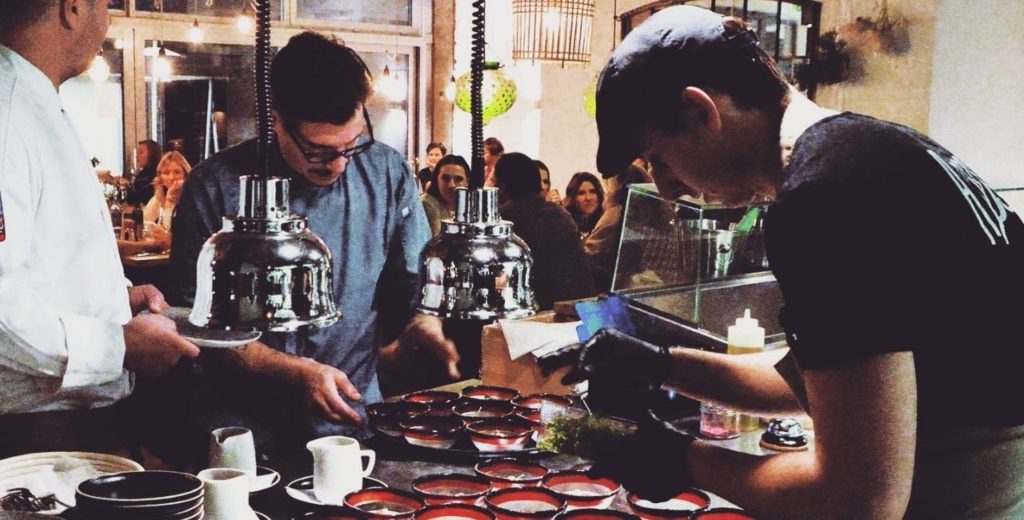
Q: How about your gourmet academy?
A: It goes very well; I am happy that it’s always full. There are courses with Italian cuisine for everyone, but I’d highlight the one with kids. I enjoy teaching them cooking because they give me a lot of energy with their questions about the food. I’ve observed that the way they are proceeding with the food making is also a way for me to expand my ideas.
Because the children are honest, and they have a clear approach to everything when they are determined to achieve their goals. Some of them are very talented. When we are preparing one specific meal, first I do a presentation of it, and afterward, I ask them to use their fantasy, their personality, without trying to copy me. And it’s great to see the way they are learning, which is very inspiring to me.
Q: You are working every single day – when are you resting?
A: When I have some free time, I try to spend it with my family, and whenever possible travel and get inspired. I’m also trying to keep myself fit – 4,5 years ago I started playing boxe, and before that, I played football. Boxe is very good for both body and mind, and I’ve made very good friends at my boxing lessons. I believe that for someone who is in the gastronomy business is important to be surrounded by the younger generation, they always bring you new ideas, inputs, and new energy.
Q: What would you advise someone who is interested in Sardinian cuisine?
A: Even though Sardinia’s history is not as popular as the other Mediterranean countries, the Sardinian cuisine is basically a never-ending structure of clashes and meetings of all the Mediterranean cultures. You can find a little bit of Spain, France, Italy, and North Italy in our cuisine. And I think if you let yourself go, it’s like a trip back in time. I think that the new type of gastronomy should be like traveling and letting yourself go.
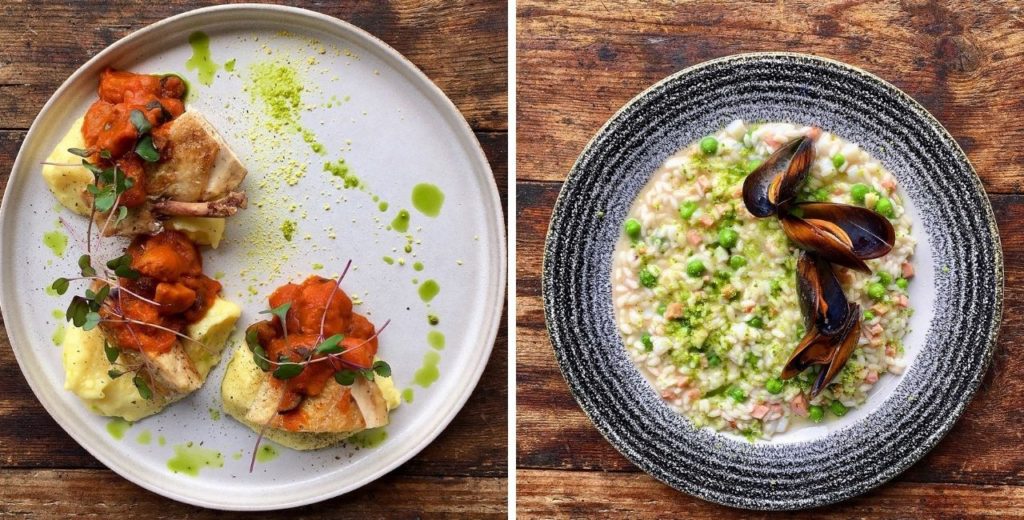
Q: What inspired the name of the restaurant?
A: Before opening, I was looking for a name that is easy to remember, but at the same time I wanted something that gives essence to what is this restaurant about. ‘A Posto’ means that everything is as it should be, or everything is just fine. So, the unity of the name, the interior and our wonderful meals are giving our guests a message of welcoming them into my home.
We want our guests to feel comfortable on every occasion when they are visiting – it can be a romantic dinner, a family lunch, or even just a quick stop-by for a small bite or a coffee. Our customers should feel at home at A Posto Trattoria.
Q: Please give us 5 words that are describing your trattoria
A: We Love What We Do – this is our slogan.
I’d like to mention that we are opening a pastry and ice cream shop soon, on the Dock project’s promenade in Prague 8. It’s scheduled to open in a month, or a month and a half. I will announce it on my Instagram account too. Its name will be O.M.G.! and we are looking forward to welcoming our guests, providing them fantastic and authentic sweets, pastries, ice-creams, and even better customer service.
-
NEWSLETTER
Subscribe for our daily news







